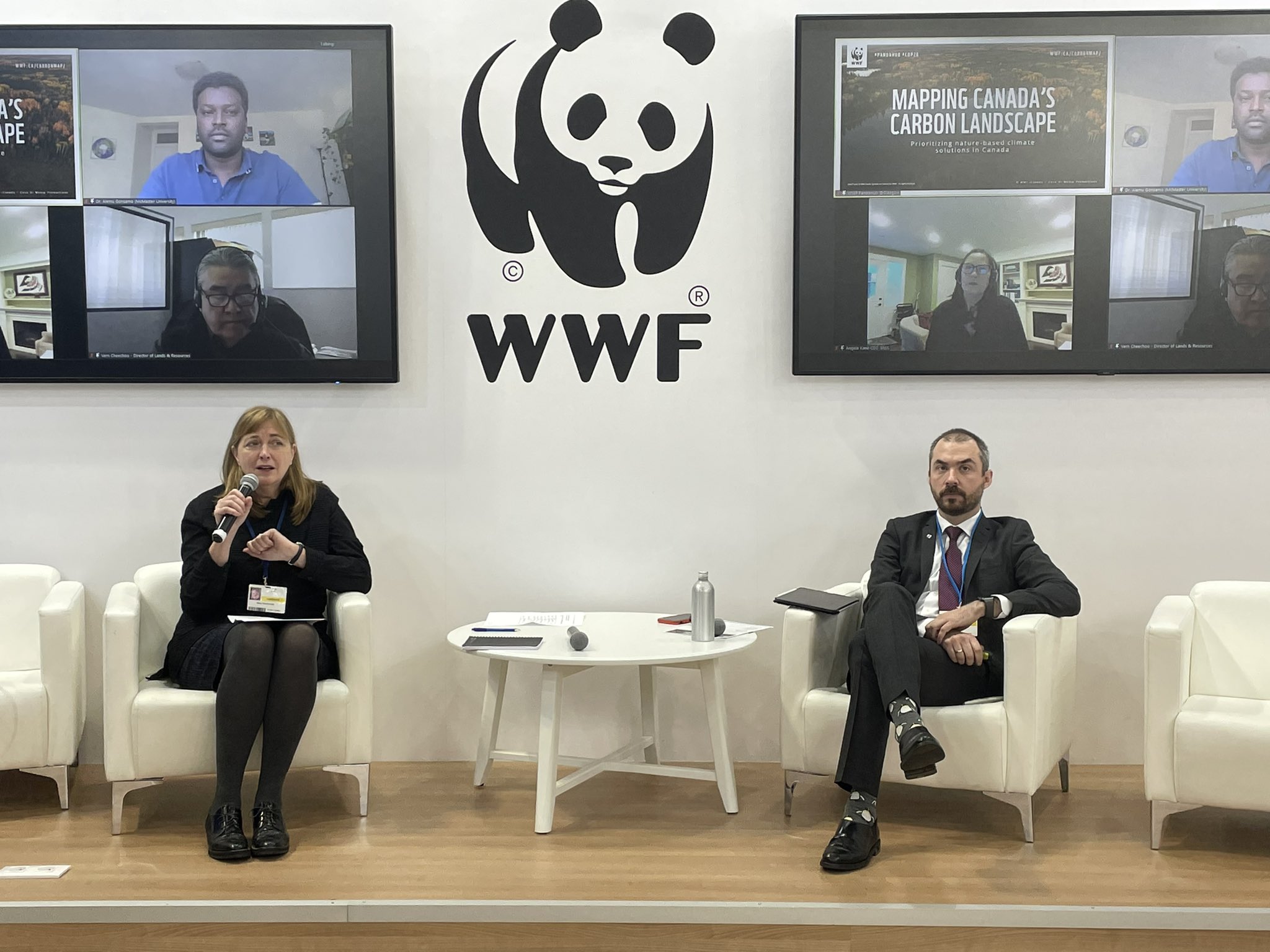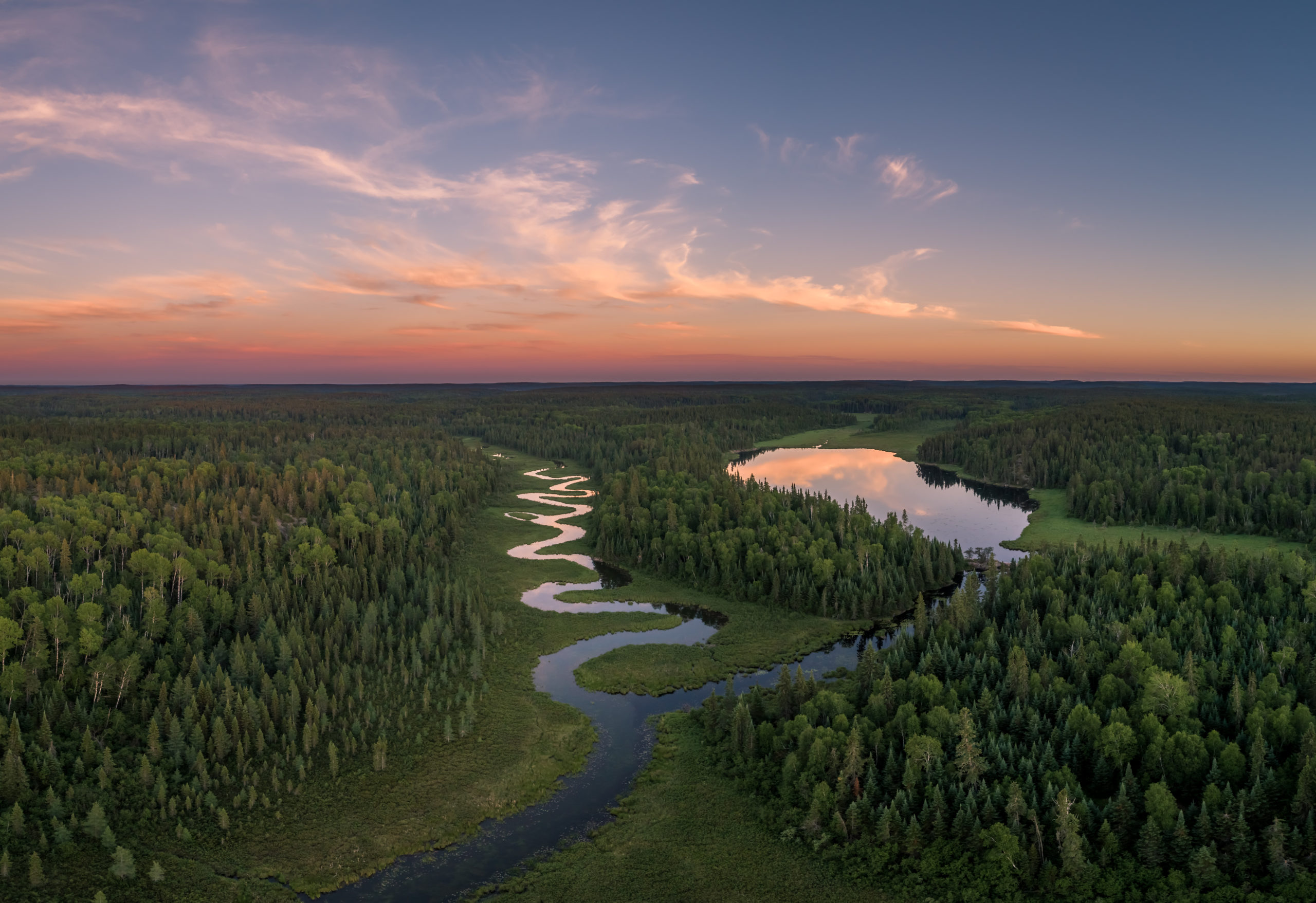What does WWF-Canada want to see happen at the COP28 climate summit?
For three decades, world leaders have gathered annually at a “Conference of Parties” to talk global action on climate change. But COP28 in Dubai, from November 30–December 12, is particularly crucial because countries are way behind on emissions reduction targets even as global temperatures and climate disasters keep climbing.
The UN has just completed a “global stocktake” to understand exactly how far behind we are, and this year’s summit is about negotiating what we need to do to get back on track and turn that talk into action.
With WWF-Canada staff on the ground — following progress, adding pressure and pushing our priorities — we spoke to Mary MacDonald, our Senior VP of Conservation, to find out more about her hopes for this historic summit.

What kind of commitments would you like to see at this COP?
We want to see countries coming together to commit to action, funding and accountability that will stop climate disruption — wildfires, flooding, droughts, storm surges — and its impact on nature and people. The climate COP in Dubai will need to address the fact that almost no country is meeting global targets for reducing greenhouse gas emissions.
What do we want to see the Government of Canada do?
We’re a nature organization first and foremost so, as WWF-Canada, we want to see the federal government lead on bringing countries together to recognize the value of healthy ecosystems in storing and removing carbon. To do this, we need to see nature built into the body of the agreement that comes out of this COP, including a “how to” for implementing those commitments.
READ MORE: High-stakes COP28 climate summit ignites at end of hottest year ever
Of course, we also want to see a commitment to the phase out of fossil fuels by 2050. Alternative renewable energy sources are increasing every year, and we must make the transition to these sources. Canada needs to agree to a global adaptation goal and, as a rich country, to continue to provide funding to poorer countries to allow them to adapt to a changing climate and to make their own transition away from fossil fuels.
How will we implement climate action, since we’ve missed all the targets to date?
It’s not only Canada that’s missing its targets — all countries are behind. But we know what we have to do and now we have to do it. Missed targets are not a reason to give up. Every person, organization, government agency and business need to reduce their contributions to greenhouse gas emissions and to maximize healthy ecosystems. We need to seize opportunities and make changes immediately.

How do healthy ecosystems contribute to stopping climate change?
Wetlands, forests, coastal zones, watersheds and other natural systems pull carbon from the atmosphere and store it in soil, roots and plants. Stewardship of ecosystems and living within the natural capacity of those ecosystems — the way First Nations, Inuit and Métis communities do when they haven’t been prevented from doing so — not only helps biodiversity flourish but also allows nature to do its job, which is to absorb atmospheric carbon that, left unchecked, drives climate change.
What are particular things you’ll be watching for in Dubai?
We will be closely watching the reaction and response by countries to the global stocktake. At COP28, every country should spell out exactly what they do to keep global warming below 1.5 C. We’ll be watching for a commitment to the phase out of fossil fuels by 2050. Overall, we’d like to see a global goal that includes financial resources for climate adaptation, and more than $100 billion flowing from public and private sources to help meet climate targets. We want to see the role of nature in reducing emissions explicitly recognized and supported in the final agreement.
Finally, it’s vital that the roles, knowledge and rights of Indigenous nations and organizations in Canada — and throughout the globe — be recognized and supported in the fight against climate change.
How will the outcomes of COP28 tie into the Global Biodiversity Framework that was signed in Montreal at COP15 last December?
The link between healthy ecosystems and keeping global warming to less than 1.5 C degrees is strong. The UN treaty on biodiversity and the UN treaty on climate now both recognize the importance of that connection.
At COP28, we want to see all countries commit in the agreement to actions that support measurable increases in the amount of carbon stored in nature.
